IMPACT Madagascar
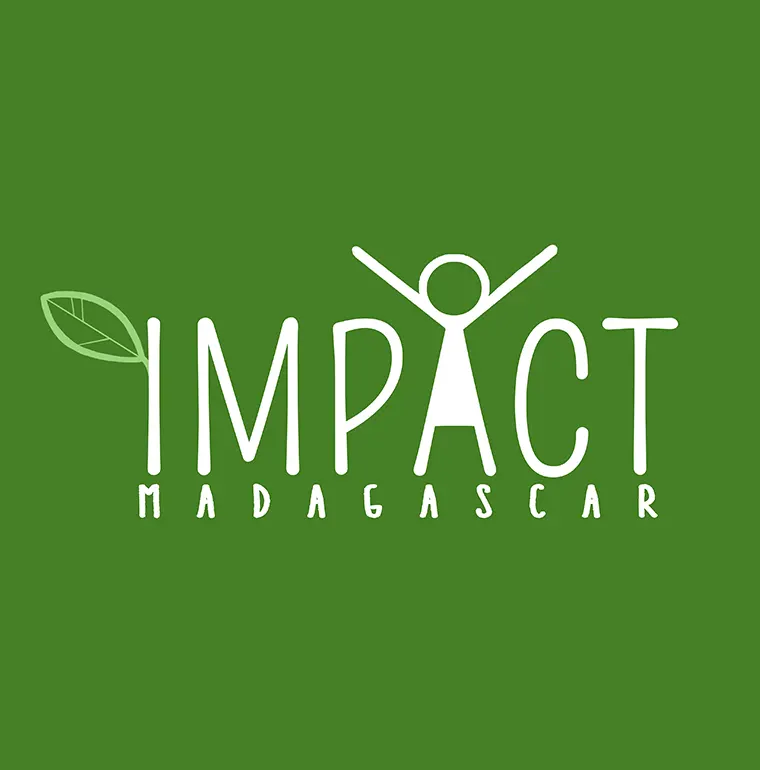
DONATE TO IMPACT MADAGASCAR Verified for authenticity Learn More IMPACT PROMISE Our Partners are carefully selected due to their high conservation impact Appeal Snapshot Partner: IMPACT Madagascar Location: Madagascar, Africa Category: Community Support and Development Protected Area Management Wildlife Conservation Urgent Appeals: Making Positive Change For Communities In Madagascar Date Founded: 2014 Website: www.impactmadagascar.org Partner Qualifications: Verified PartnerOne of Conservation Allies’ staff or trusted advisors has visited this organization and verified its work and impact. Legally ConstitutedThis organization is formally constituted and is a legally recognized non-profit in its country of origin. Effective ImpactWe recognize this Partner for their tremendous efforts to make a difference for wildlife and local communities, as well as welcome technical support from Conservation Allies to improve and scale up their impact. Conservation Action HeroesWe recognize this Partner for their high level of engagement with the Conservation Allies team and their demonstration of a clear commitment to our collective mission of making a real difference and having a major impact on wildlife and communities where it is needed most. About IMPACT Madagascar IMPACT Madagascar is a conservation non-profit that focuses on implementing and sustaining actions for change in Madagascar. The actions are intended to benefit and empower local communities. From development and biodiversity conservation to recycling and arts education, they sponsor a variety of projects that will aid in building a bright and sustainable future for the people and wildlife of Madagascar. Their Vision: Protecting and conserving Madagascar’s unique biodiversity while improving the lives of its people. They implement permanent change through collaboration with local people, creating a foundation on which a better world can be built. Their Mission: To work with local communities to provide achievable and sustainable solutions to the problems of biodiversity loss, deforestation, pollution, and poverty. Their Challenges Their primary challenge revolves around the destruction of vulnerable habitats. Most of Madagascar’s tropical forests have been transformed into fragmented landscapes, leaving behind disconnected and degraded forest patches. This forest fragmentation is the most significant threat that IMPACT Madagascar is challenging. Additional challenges include the extraction of natural resources that rural communities rely on for their livelihoods. These threats include illegal logging, timber exploitation, charcoal production, wildlife poaching, overfishing with illegal traps and nets, land-clearing bushfires (often for agriculture), and general overuse of forest and aquatic resources. Notably, bushfires are a major concern in dry habitats, primarily occurring at the end of the dry season for agricultural preparation. Habitat threats are more prevalent when rangers are absent, particularly on weekends. Their Approach IMPACT Madagascar works alongside local people in order to empower communities, running community-led programs and coaching practical conservation skills that are sustainable for both people and the environment. It is not possible to protect the environment and its biodiversity without also considering the people who depend upon the surrounding natural resources for survival. Since its creation in 2014, IMPACT Madagascar has supported local communities in reducing poverty and ensuring sustainable and feasible conservation of the environment through a holistic approach including: Community Development and Community Conservation Environmental Outreach and Practical Environmental Education Forest and Wetlands Biodiversity and Habitat Monitoring Reforestation and Ecological Restoration Community Health Applied Scientific Research IMPACT Madagascar also works with local people to implement conservation actions, such as threat monitoring and response through patrols. They believe that conservation solutions must be implemented with community development at their core. Therefore, local people are involved in all stages of the conservation projects. They have established reforestation programs, where they are actively restoring forest habitats via an annual tree planting program. They also plant fast-growing species to provide the communities with firewood, thereby conserving the protected forests. Local people are trained and then paid to monitor these programs alongside the IMPACT team. Why They Need Your Help Madagascar is at serious risk of losing its remaining dry and gallery forest, along with the critically endangered species that call them home. To maintain these habitats, threats need to be reduced. Habitat threats occur mainly when rangers are absent, particularly over the weekends. Thus, increasing patrol capacity is vital to protecting these ecosystems and improving fire management strategies. This, along with all of their other initiatives, are made possible by donations. IMPACT Madagascar is also in need of additional funding to implement a new environmental education program to provide the next generation with the skills and knowledge to protect their environment. Conservation Allies charges no overhead fees or administration costs, meaning 100% of your donation goes directly to the Partner or Project of your choice. All donations made from the United States are fully tax-deductible.
Ny Tanintsika
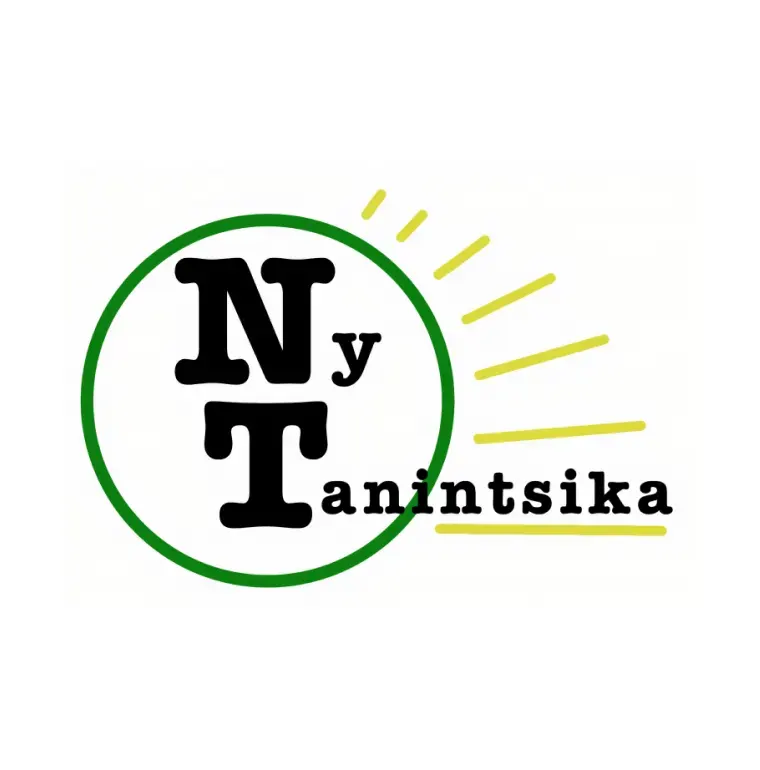
DONATE TO NY TANINTSIKA Verified for authenticity Learn More IMPACT PROMISE Our Partners are carefully selected due to their high conservation impact Appeal Snapshot Partner: Ny Tanintsika Location: Madagascar, Africa Category: Community Support and Development Capacity Building and Training Wildlife Conservation Urgent Appeals: Listen to the Cries of Nature Date Founded: 2002 Website: www.nytanintsika.org Partner Qualifications: Verified PartnerOne of Conservation Allies’ staff or trusted advisors has visited this organization and verified its work and impact. Legally ConstitutedThis organization is formally constituted and is a legally recognized non-profit in its country of origin. Effective ImpactWe recognize this Partner for their tremendous efforts to make a difference for wildlife and local communities, as well as welcome technical support from Conservation Allies to improve and scale up their impact. Conservation Action HeroesWe recognize this Partner for their high level of engagement with the Conservation Allies team and their demonstration of a clear commitment to our collective mission of making a real difference and having a major impact on wildlife and communities where it is needed most. About Ny Tanintsika Ny Tanintsika, meaning “Our Land” in Malagasy, is a non-profit created with support from the Scottish charity ‘Feedback Madagascar’ with the aim of Developing a sustainable local model for good governance, accountability and efficiency Bridging the gap of misunderstanding often found between local beneficiaries and foreign NGOs, and Sustainably developing Malagasy civil society Ny Tanintsika’s mission is to contribute to poverty reduction and sustainable natural resource management. Their vision is “Healthy people who take charge of their own development, living in harmony with a flourishing natural world in a fair society.” Their slogan is “Against Poverty, for Nature”. Ny Tanintsika’s priority geographical areas are those around the COFAV Protected Area (rainforest corridor) as well as the tapia forest of Amoron’i Mania region. They work with communities around these biodiversity hotspots through an integrated approach, working to improve food security, livelihoods, education, health, and forest management. Promotion of good governance and human rights are essential elements of their work. Their Challenges Madagascar’s wildlife faces enormous pressures, including deforestation, increasing droughts, and illegal poaching. Due to a lack of resources, the national forestry administration is unable to adequately arrest offenders of the forests and wildlife. In response, Ny Tanintsika has stepped in and formed management communities. They reserve resources to be able to urgently mobilize the forest administration team in order to enforce conservation practices and protect the forests. Their Approach Ny Tanintsika has a multi-pronged approach to their mission. Their activities include community patrol initiatives involving youth, women (who were traditionally excluded from conservation actions), and innovative technology. They also work to fight wildfires, raise awareness of forestry legislation and provide support for income-generating activities for patrollers. Why They Need Your Help Ny Tanintsika needs your support to increase patrols and invest in technological equipment to improve data collection and reporting. They are reliant upon generouns donations to continue their essential work of empowering communities and conserving wildlife. Conservation Allies charges no overhead fees or administration costs, meaning 100% of your donation goes directly to the Partner or Project of your choice. All donations made from the United States are fully tax-deductible.
Madagasikara Voakajy
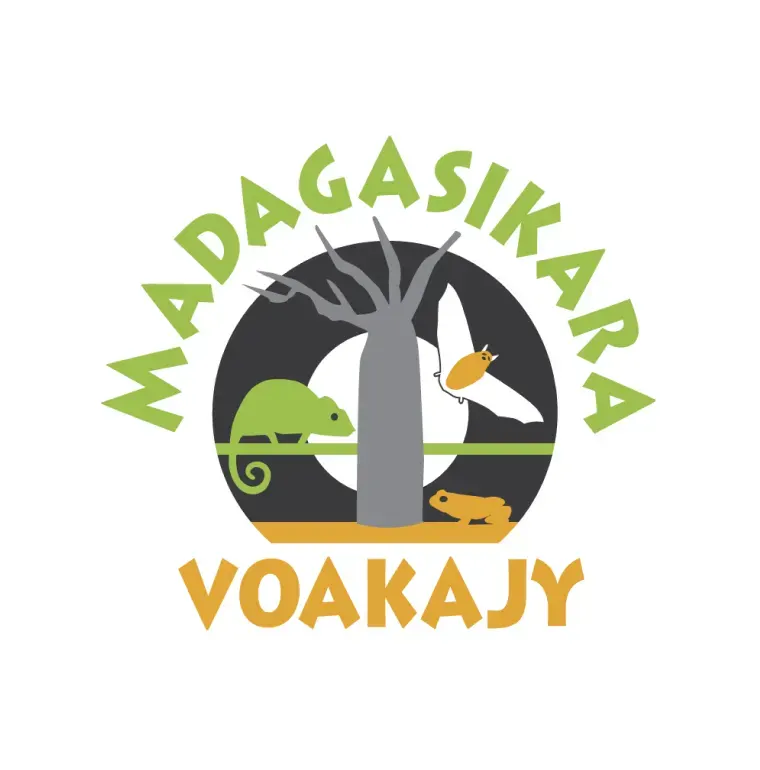
DONATE TO MADAGASIKARA VOAKAJY Verified for authenticity Learn More IMPACT PROMISE Our Partners are carefully selected due to their high conservation impact Appeal Snapshot Partner: Madagasikara Voakajy Location: Madagascar, Africa Category: Capacity Building and Training Ecosystem Restoration Scientific Research Urgent Appeals: You Are Our Hope For Madagascar! Date Founded: 2005 Website: www.madagasikara-voakajy.org Partner Qualifications: IUCN MemberA distinguished Member of the International Union for the Conservation of Nature. IUCN Members are each vetted and voted on based on an independent, rigorous assessment and external references. Learn More Verified PartnerOne of Conservation Allies’ staff or trusted advisors has visited this organization and verified its work and impact. Legally ConstitutedThis organization is formally constituted and is a legally recognized non-profit in its country of origin. Top AccountabilityOur experienced team has rigorously reviewed the organization’s annual accounts. Learn More Effective ImpactWe recognize this Partner for their tremendous efforts to make a difference for wildlife and local communities, as well as welcome technical support from Conservation Allies to improve and scale up their impact. Conservation Action HeroesWe recognize this Partner for their high level of engagement with the Conservation Allies team and their demonstration of a clear commitment to our collective mission of making a real difference and having a major impact on wildlife and communities where it is needed most. About Madagasikara Voakajy Madagasikara Voakajy is conservation non-profit organization based in Bobaomby, Madagascar, that is dedicated to the conservation of endemic and critically endangered species in Madagascar. Their mission is to preserve Madagascar’s endemic species from extinction in the wild. They recognize that this is impossible to achieve without the involvement of local community members and are thus dedicated to taking a locally-led approach to conservation. Since 2006, Madigasikara Voakajy has carried out research on the Golden mantella frog in eastern Madagascar, leading its conservation strategy. In 2015, a new protected area was created to ensure the frog’s conservation. Five years later, the Golden mantella frog was down-listed from Critically Endangered to Endangered on the IUCN Red List. This is only one of Madigasikara Voakajy’s many recent accomplishments conservation.Between 2009-2012, Madagasikara Voakajy investigated patterns of bushmeat hunting in Madagascar. Their results highlighted the significance of hunting in the decline of lemur populations. Since then, stopping lemur hunting has been a top priority in all of Madagasikara Voakajy’s conservation projects.Since 2014, Madagasikara Voakajy has investigated the biology and ecology of the Critically Endangered Perrier’s baobab, of which only 99 mature individuals are found in the wild. By 2020, they had located an additional 50 mature individuals, produced over 5,000 seedlings, and planted them. They continue to monitor the survival and growth of the planted seedlings. Their Challenges A large part of the forests of Bobaomby have been impacted by loggers due to the expansion of agricultural land, despite the fact that these forests are home to many endemic flora and fauna. The lack of funding to implement conservation tactics for the forests and wildlife species constitutes a major challenge in this area. Their Approach Local communities are at the heart of Madagasikara Voakajy’s conservation approach. Their main objectives for 2024-2028 are: Research: Better understand the biology and ecology of target species, how they interact with humans, and their conservation status Governance: Establish local structures capable of effectively managing the conservation of target species and their habitats Valorisation: Identify and promote wildlife-based economic models that can generate essential benefits for local communities while simultaneously encouraging them to reduce pressures on species of concern and their natural habitats, ultimately resulting in increased conservation success Restoration: Restore degraded habitats of target species in the wild Madagasikara Voakajy uses the results of scientific studies to guide their conservation efforts. With donor support in 2023, they planted 6,000 trees over 10 acres alongside local villagers. They also created an agreement with the community to plant baobabs, an indigenous tree of great cultural significance that is also vital for Madagascar’s wildlife. Why They Need Your Help Madagasikara Voakajy is looking for support to continue their forest restoration work and to strengthen and train their staff and community members on the sustainable management of natural resources. They are also working to advance scientific research on the key species existing of Bobaomby in order to improve their conservation strategies. All of their conservation activities are reliant upon donations to continue. Conservation Allies charges no overhead fees or administration costs, meaning 100% of your donation goes directly to the Partner or Project of your choice. All donations made from the United States are fully tax-deductible.
Madagascar Wildlife Conservation
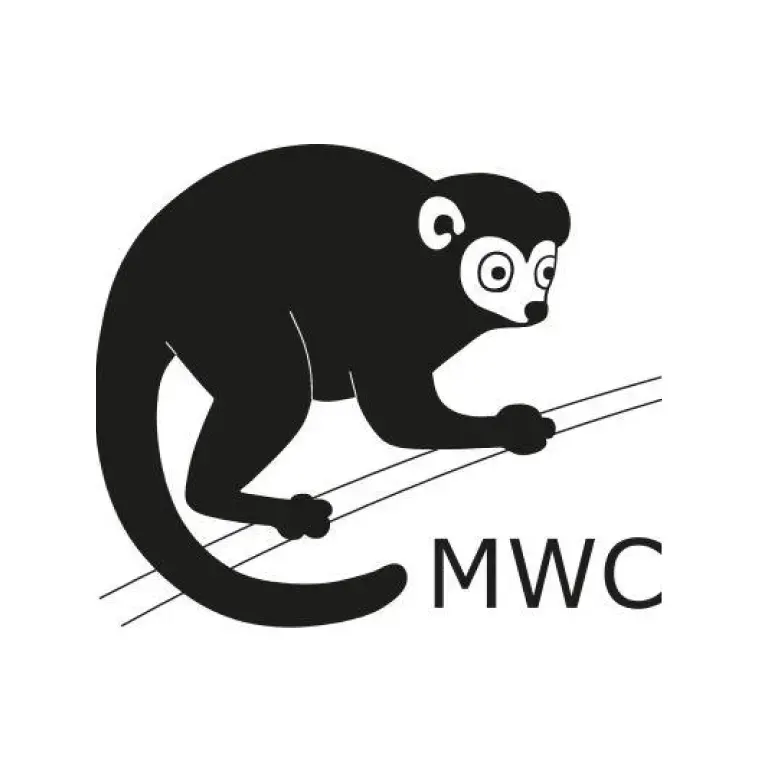
DONATE TO MWC Verified for authenticity Learn More IMPACT PROMISE Our Partners are carefully selected due to their high conservation impact Appeal Snapshot Partner: Madagascar Wildlife Conservation Location: Madagascar, Africa Category: Ecotourism Environmental Education Scientific Research Urgent Appeals: Help Save The Alaotran Gentle Lemur Date Founded: 2003 Website: www.madagascar-wildlife-conservation.org Partner Qualifications: Verified PartnerOne of Conservation Allies’ staff or trusted advisors has visited this organization and verified its work and impact. Legally ConstitutedThis organization is formally constituted and is a legally recognized non-profit in its country of origin. Top AccountabilityOur experienced team has rigorously reviewed the organization’s annual accounts. Learn More Effective ImpactWe recognize this Partner for their tremendous efforts to make a difference for wildlife and local communities, as well as welcome technical support from Conservation Allies to improve and scale up their impact. Conservation Action HeroesWe recognize this Partner for their high level of engagement with the Conservation Allies team and their demonstration of a clear commitment to our collective mission of making a real difference and having a major impact on wildlife and communities where it is needed most. About Madagascar Wildlife Conservation Madagascar Wildlife Conservation (MWC) is a Malagasy non-profit organization that is leading a variety of conservation initiatives in Alaotra Lake, with the overarching aim of saving the Critically Endangered Alaotran gentle lemur from extinction. Their longterm initiatives include biodiversity conservation and research, environmental education, implementing mechanisms for sustainable resource use, and ecotourism development. MWC co-manages the special conservation zone and leads successful restoration activities in Park Bandro, home to the largest sub-population of the Alaotran gentle lemur. Their Challenges With more than 550,000 people living around the lake, human pressure on the Ramsar site is high. The main economic drivers are fisheries and rice production and the human population has increased more than 6-fold in the past 40 years. During the same period, agricultural output has dropped to about 40% of its former level. As usable land is decreased, more people are entering the marshes to establish rice fields. Bush-meat hunting in the marshes for Alaotran gentle lemur has also been reported to be on the rise again in recent years. It is broadly recognized that due to low yields, marshland transformation is used to expand areas under cultivation, creating a self-reinforcing cycle of declining yields to continued deforestation and land transformation. Their Approach MWC works closely with public primary schools to promote environmental awareness into school curricula, advocating for interactive and experiential learning to aid understanding of and interest in the natural world. In the past few years, educational outreach has been increased to include natural resource users and associations. MWC further works with Alaotra’s farmers and fishers to develop sustainable agricultural/fishing practices and to promote the creation of alternative revenue sources to alleviate pressure on the natural environment from traditional slash and burn agriculture and overfishing. MWC is also leading the local community in ecotourism to link conservation efforts with development and to generate alternative incomes for the community, facilitating and moderating conservation and environmental education workshops with and for various stakeholder groups, and hosting conservation-focused community meetings. They work to prevent illegal activities, such as bush-meat trapping and the conversion of wetlands to agricultural lands. Additional projects include marsh restoration and community outreach. Why They Need Your Help MWC is seeking your support for the following activities: Ensuring intensive patrolling to protect the Alaotran gentle lemur and monitor its population. Expanding marshland conservation efforts through local community outreach Providing livelihood opportunities for local community members Improving marsh vegetation structure around Alaotra Strengthening law enforcement to stop illegal Alaotran gentle lemur hunting and the conversion of marshlands into rice fields. MWC is reliant upon donations to continue their critical work of saving the Alaotran gentle lemur and the surrounding habitats. Conservation Allies charges no overhead fees or administration costs, meaning 100% of your donation goes directly to the Partner or Project of your choice. All donations made from the United States are fully tax-deductible.
Madagascar Biodiversity Partnership
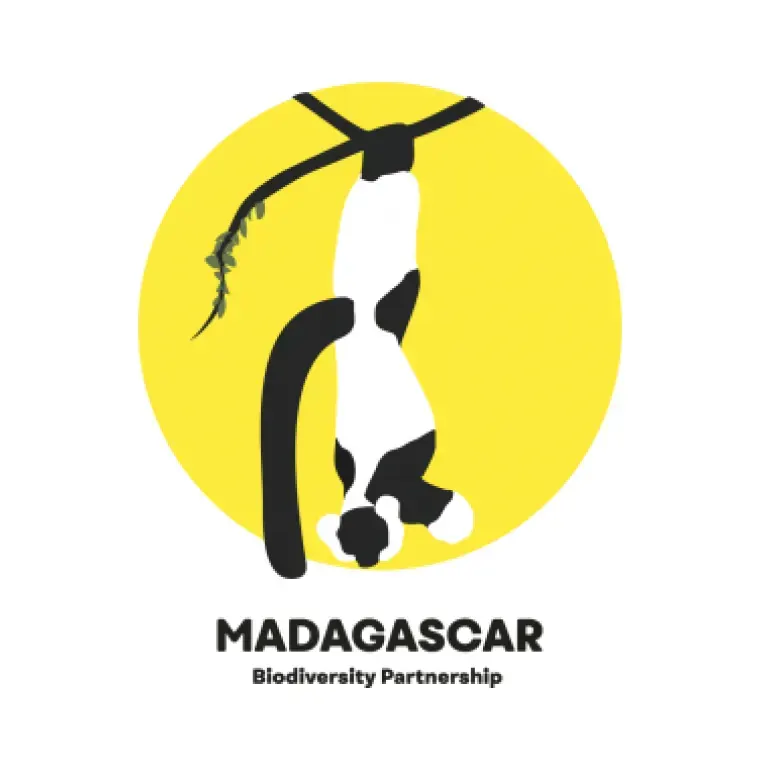
DONATE TO MBP Verified for authenticity Learn More IMPACT PROMISE Our Partners are carefully selected due to their high conservation impact Appeal Snapshot Partner: Madagascar Biodiversity Partnership Location: Madagascar, Africa Category: Community Support and Development Protected Area Management Scientific Research Urgent Appeals: None currently Date Founded: 2010 Website: www.madagascarpartnership.org Partner Qualifications: Verified PartnerOne of Conservation Allies’ staff or trusted advisors has visited this organization and verified its work and impact. Legally ConstitutedThis organization is formally constituted and is a legally recognized non-profit in its country of origin. Top AccountabilityOur experienced team has rigorously reviewed the organization’s annual accounts. Learn More Effective ImpactWe recognize this Partner for their tremendous efforts to make a difference for wildlife and local communities, as well as welcome technical support from Conservation Allies to improve and scale up their impact. Conservation Action HeroesWe recognize this Partner for their high level of engagement with the Conservation Allies team and their demonstration of a clear commitment to our collective mission of making a real difference and having a major impact on wildlife and communities where it is needed most. About Madagascar Biodiversity Partnership The Madagascar Biodiversity Partnership works with local communities to balance the needs of people while protecting endangered wildlife and wild places. With four field stations located across the island from the northern tip of the country to the south, the Madagascar Biodiversity Partnership adapts every activity to the local culture and habitat. Their Challenges The Madagascar Biodiversity Partnership’s northernmost field site is near a tropical deciduous forest that is home to the global population of the Northern Sportive Lemur. This species is on the brink of extinction with estimates of 100 individuals or less remaining. Unfortunately, illegal harvesting of trees for charcoal production and timber is rapidly fragmenting the forest. Though a protected area, enforcement is difficult due to the site’s convenient proximity to a burgeoning city. Deforestation is also the primary threat to wildlife around the two of Madagascar Biodiversity Partnership’s field stations in humid, evergreen forests, but is driven here by the agricultural needs of the community. As a result of the removal of large fruit-bearing trees in the forest, the Critically Endangered Black-and-white Ruffed Lemurs experience a decline in population, as these trees are their main source of food. Although the Critically Endangered Greater Bamboo Lemurs can adjust their natural diet when disrupted by deforestation, they often turn to agricultural crops which can lead to human-wildlife conflicts. In the dry, spiny forest around the southernmost field station of the Madagascar Biodiversity Partnership, agriculture, and charcoal production are the main stressors on wildlife populations. While the area is home to one of the last strongholds of the Critically Endangered Radiated Tortoise, this species must still contend with the above threats in addition to poaching pressures. Their Approach Habitat loss is a shared consequence of human activity around every Madagascar Biodiversity Partnership field station. Community-supported reforestation programs that include native species as well as tree species that are useful to people are being implemented at each site. Though the benefits take years to reap, the action engages more than a thousand people every year. This community-driven proactive behavior has planted more than 6 million trees since 2012. As this is a long-term commitment, a generation of children is growing up with this as part of their ethos. Depending on the drivers of habitat loss, interventions can include workshops to make improved cook stoves to reduce the amount of fuel required to prepare a meal, forest patrols with volunteer rangers and local authorities, experimentation with alternative agriculture strategies, introduction of agroforestry crops, and composting workshops. Meanwhile, lemur monitoring is an ongoing activity providing a ‘live stream’ of data on wildlife populations that will aid in their conservation. Why They Need Your Help In 2022 and 2023, four cyclones impacted the communities and forests where the Madagascar Biodiversity Partnership works. Damage ranged from minor flooding and the toppling of trees to complete destruction of homes, schools, and other critical infrastructure. Where there have not been cyclones, a multi-year drought is pushing people and wildlife to their limits. In Madagascar, people have centuries of knowledge and experience that allow them to thrive under familiar conditions, but shifting weather patterns and growing human populations require exploring new ways of meeting household needs. Support from you will help the Madagascar Biodiversity Partnership maintain its programs including the long-running wildlife monitoring programs that document the response of lemurs, tortoises, and the forest to cyclones, habitat conversion, and more. Healthy lemur populations are also a boon to communities as people from around the world travel to Madagascar to see them. The Madagascar Biodiversity Partnership’s lemur monitoring teams bring visitors to the forest where ecotourists can see the animals in the wild. The proceeds provide livelihoods and are distributed among local organizations, like the mayor’s office which used the funds for community improvement projects like replacing school roofs. Your support will also help the Madagascar Biodiversity Partnership expand its ecotourism activities. Conservation Allies charges no overhead fees or administration costs, meaning 100% of your donation goes directly to the Partner or Project of your choice. All donations made from the United States are fully tax-deductible.
Lemur Conservation Foundation
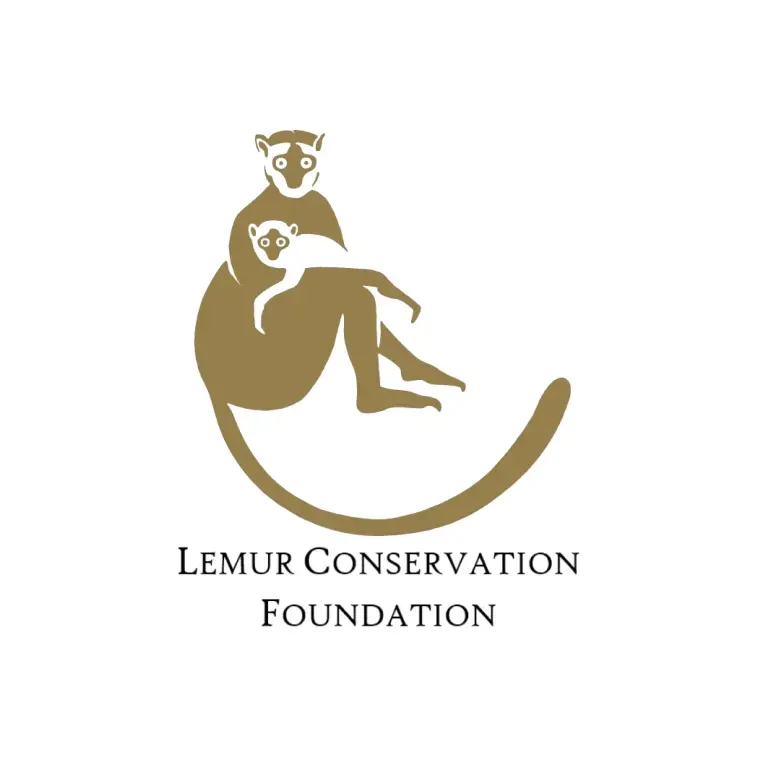
DONATE TO LCF Verified for authenticity Learn More IMPACT PROMISE Our Partners are carefully selected due to their high conservation impact Appeal Snapshot Partner: Lemur Conservation Foundation Location: Madagascar, Africa Category: Endangered Species Protected Area Management Wildlife Conservation Urgent Appeals: Silky Sifakas Need Your Help Date Founded: 1996 Website: www.lemurreserve.org Partner Qualifications: IUCN Member A distinguished Member of the International Union for the Conservation of Nature. IUCN Members are each vetted and voted on based on an independent, rigorous assessment and external references. Learn More Verified Partner One of Conservation Allies’ staff or trusted advisors has visited this organization and verified its work and impact. Legally Constituted This organization is formally constituted and is a legally recognized non-profit in its country of origin. Top Accountability Our experienced team has rigorously reviewed the organization’s annual accounts. Learn More Effective Impact We recognize this Partner for their tremendous efforts to make a difference for wildlife and local communities, as well as welcome technical support from Conservation Allies to improve and scale up their impact. Conservation Action Heroes We recognize this Partner for their high level of engagement with the Conservation Allies team and their demonstration of a clear commitment to our collective mission of making a real difference and having a major impact on wildlife and communities where it is needed most. About The Lemur Conservation Foundation The Lemur Conservation Foundation is a non-profit organization dedicated to the preservation and conservation of the primates of Madagascar through managed breeding, scientific research, education, and art. Their home base is the AZA-accredited Myakka City Lemur Reserve in southwest Florida, where about 50 lemurs live in natural forests and connected enclosures. Species include Mongoose lemurs, Red-ruffed lemurs, Ring-tailed lemurs, Common brown lemurs, and Collared brown lemurs. LCF has the largest population of Critically Endangered Mongoose lemurs outside of Madagascar and one of the largest populations of Critically Endangered Red-ruffed lemurs. In northeastern Madagascar, LCF has maintained a staffed office since 2016, located in Sambava. With 22 lemur species, including 6 critically endangered species, northeastern Madagascar has long been a primate conservation and biodiversity hotspot. All staff members are Malagasy residents who work extensively in and around Marojejy National Park and Anjanaharibe-Sud Special Reserve as well as inside northern Makira. They conduct lemur surveys and research programs to protect and study Critically Endangered Silky sifakas, Indris, and Red-ruffed lemurs, which are all found in this region. Conservation programs run by LCF include forest monitoring, lemur research, eco-tourism, environmental education, community health programs, reforestation work, and distribution of fuel-efficient stoves. Their Challenges Although stunningly rich in biodiversity, Madagascar is also exceptionally poor in almost every quality-of-life measure tracked by the United Nations and World Bank. The population is exploding, and most Malagasy people live on less than $1 per day. Poverty and political instability have undermined Madagascar’s environmental management. Slash and burn agriculture, selective logging of precious wood (rosewood and ebony), and fuel wood harvesting has accelerated deforestation and erosion, which in turn has altered microclimates, leading to droughts, forest fires, and soil degradation. Bushmeat hunting of lemurs has also increased in recent years due to a lack of alternative protein sources in rural villages as well as the emergence of a commercial bushmeat trade. Geographically, the steep mountainous rainforests of Marojejy National Park and Anjanaharibe-Sud Special Reserve are one of the most difficult habitats to monitor. The Marojejy Protected Area Complex is one of the largest rainforest landscapes in Madagascar, and the resources of one Madagascar National Parks office are stretched between two large reserves. There is only one major paved road in the whole region; most of Marojejy and all of ASSR lack accessible roads. The protected areas face many additional challenges, including insufficient park ranger and boundary demarcation, illegal rice and vanilla plantations inside Marojejy, and crystal mining in ASSR. Socio-economic concerns include the decline in tourism due to the COVID-19 pandemic, the crash of vanilla prices, and growing human population. Their Approach LCF is one of the primary sponsors of Marojejy National Park and Anjanaharibe-Sud Special Reserve (ASSR), which are among the largest and least disturbed rainforest landscapes in Madagascar. LCF’s conservation programs, based on the IUCN Lemur Action Plan, emphasize ecotourism, environmental education, research, park and lemur protection, reforestation, sustainable development, and population/health/environment (PHE) programs. Ecotourism projects include rebuilding the dining areas, bungalows, and kitchen facilities in Marojejy, in addition to building new tent shelters, a dining area, shower, and toilet for Camp Indri, the sole camping site of ASSR. The camps not only bring tourists and researchers, but also give local school groups a chance to view exceptional wildlife in primary forests during overnight fieldtrips led by LCF. Madagascar National Parks collaborates closely with LCF to improve park boundary demarcation, lemur surveys, and monthly week-long forest patrols which include intensive data collection and actual enforcement. LCF also has one of the largest family planning programs in Madagascar, supporting hospital nurses who treated over 1,300 women with 3-year contraceptive implants in 2022. To counter deforestation in the SAVA region, LCF manages 6 tree nurseries from which 43,258 trees of 61 different indigenous species were planted in 2023. Why They Need Your Help The Lemur Conservation Foundation is doing critical work on the ground in Madagascar to protect lemurs and their habitat. They face numerous challenges and their work cannot be sustained without generous donations from the public. Conservation Allies charges no overhead fees or administration costs, meaning 100% of your donation goes directly to the Partner or Project of your choice. All donations made from the United States are fully tax-deductible.
Groupe d’Étude et de Recherche sur les Primates de Madagascar
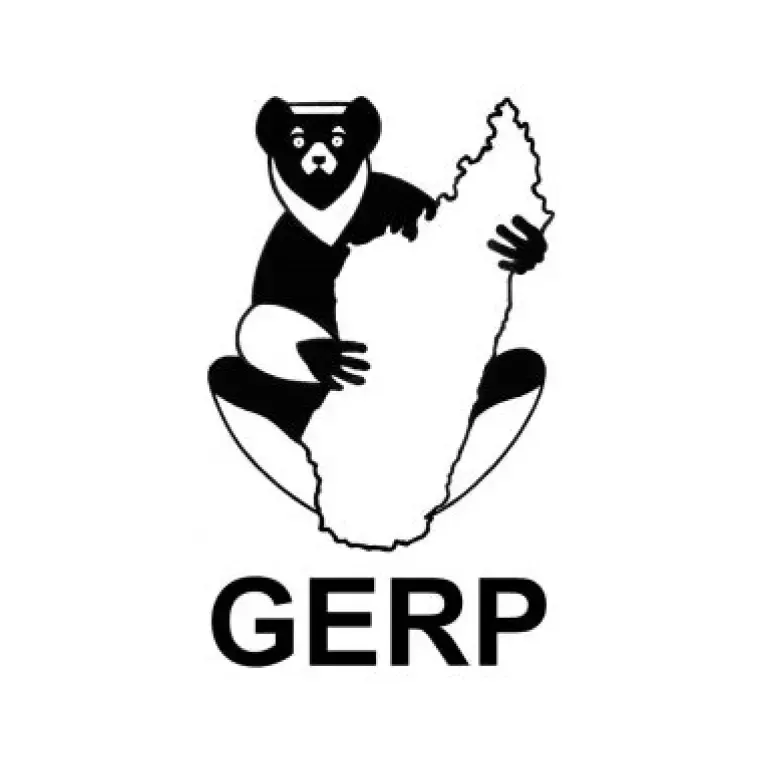
DONATE TO GERP Verified for authenticity Learn More IMPACT PROMISE Our Partners are carefully selected due to their high conservation impact Appeal Snapshot Partner: Groupe d’Étude et de Recherche sur les Primates de Madagascar (GERP) Location: Madagascar, Africa Category: Ecotourism Reforestation Scientific Research Urgent Appeals: Lemurs! Our Treasure Needs Your Help Date Founded: 1994 Website: www.association-gerp.org Partner Qualifications: Verified PartnerOne of Conservation Allies’ staff or trusted advisors has visited this organization and verified its work and impact. Legally ConstitutedThis organization is formally constituted and is a legally recognized non-profit in its country of origin. Effective ImpactWe recognize this Partner for their tremendous efforts to make a difference for wildlife and local communities, as well as welcome technical support from Conservation Allies to improve and scale up their impact. Conservation Action HeroesWe recognize this Partner for their high level of engagement with the Conservation Allies team and their demonstration of a clear commitment to our collective mission of making a real difference and having a major impact on wildlife and communities where it is needed most. About GERP Groupe d’Etude et de Recherche sur les Primates de Madagascar (GERP) was formed by a group of 10 Malagasy primatologists highly dedicated to wildlife conservation. GERP has grown to now have over 111 members, comprised of researchers, teachers, students, founding members, donors, and consultants. The main goal of GERP is to share knowledge and skills in order to preserve biodiversity for future generations. GERP’s project framework is divided into four sectors: Research and Conservation, Community Health, Livelihood Development, and Education. Their Challenges GERP carries out its mission in the face of several significant challenges. Habitat destruction, driven by deforestation, mining, and agriculture, poses a constant threat. Additionally, lemurs face risks from illegal wildlife trade and poaching. Engaging with local communities and addressing economic and social factors, such as poverty, is crucial but challenging, as it involves building sustainable relationships and providing alternative livelihoods. Securing funding for research, projects, and community initiatives, all of which can be resource-intensive, is another hurdle. Furthermore, climate change’s impact on lemur habitats is a growing concern that GERP’s research and initiatives are working to address. Their Approach GERP takes a multi-faceted approach to their conservation work, with focuses on the following areas: Research and Monitoring: GERP conducts extensive research on lemur behavior, ecology, and population dynamics. This research helps us understand the specific needs of different lemur species and their habitats. Habitat Protection: The organization is actively involved in protecting and preserving the natural habitats of lemurs. This includes collaborating with local communities and advocating for conservation areas and protected reserves. GERP also actively conducts patrols and reforestation projects to conserve and rewild Madagascar’s natural habitats. Community Engagement: GERP works closely with local communities, understanding their needs and involving them in conservation efforts. This includes identifying the need for and providing alternative livelihoods and sustainable income-generating projects that reduce reliance on activities harmful to lemur habitats. Education and Outreach: GERP runs education and awareness campaigns to inform the public, both locally and internationally, about the importance of lemurs and biodiversity in Madagascar. Advocacy and Policy: GERP actively engages with policymakers and stakeholders to influence and implement conservation-friendly policies and regulations. Climate Resilience: GERP addresses climate change impacts by promoting sustainable land management practices and helping communities adapt to changing environmental conditions. Scientific Capacity Building: The organization trains and supports local researchers and conservationists, contributing to the scientific knowledge of Madagascar’s biodiversity. Why They Need Your Help For 25 years, GERP has worked for the protection of lemurs. They believe that the preservation of these endemic species is the responsibility of everyone and that people protect only what they know. For this reason, education and sensitization are essential parts of GERP’s conservation program. As there is still much to discover and learn about lemurs, GERP carries out continuous research, inventories, and participates in national and international conferences to share findings. They do extensive conservation and sustainable community development work. All of GERP’s projects depend upon donations to continue long into the future.
Fikambanana Bongolava Maitso
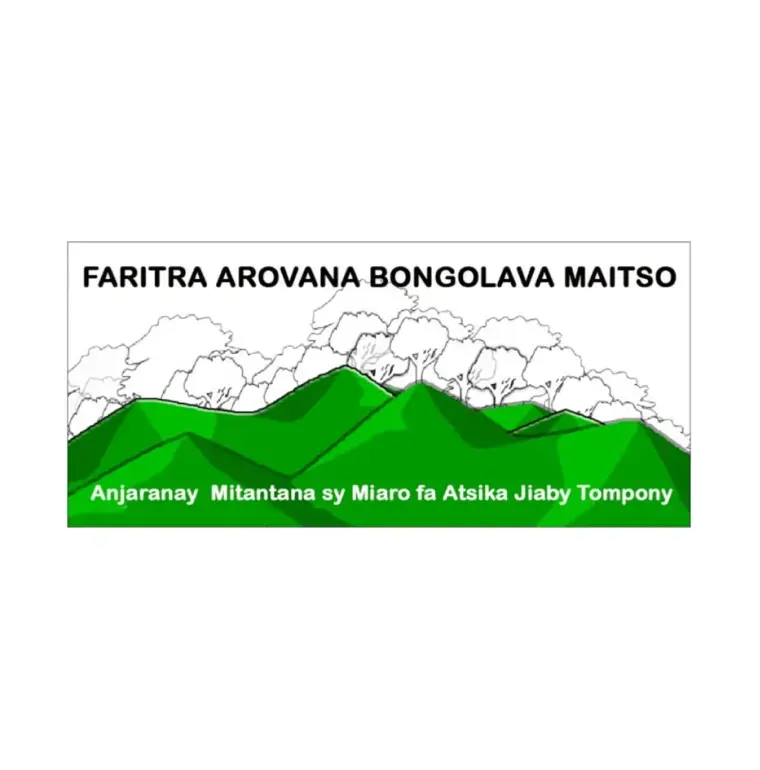
DONATE TO FBM Verified for authenticity Learn More IMPACT PROMISE Our Partners are carefully selected due to their high conservation impact Partner Snapshot Partner: Fikambanana Bongolava Maitso (FBM) Location: Madagascar, Africa Category: Community Support and Development Protected Area Management Ecosystem Restoration Urgent Appeals: Protect The Bongolava Forest Corridor Date Founded: 2005 Website: www.bongolavamaitso.mg Partner Qualifications: Verified PartnerOne of Conservation Allies’ staff or trusted advisors has visited this organization and verified its work and impact. Legally ConstitutedThis organization is formally constituted and is a legally recognized non-profit in its country of origin. Effective ImpactWe recognize this Partner for their tremendous efforts to make a difference for wildlife and local communities, as well as welcome technical support from Conservation Allies to improve and scale up their impact. communities where it is needed most. About Fikambanana Bongolava Maitso Fikambanana Bongolava Maitso is a non-profit organization, mainly run by farmers living around the Bongolava Forest Corridor Protected Area in Madagascar. Their mission is to contribute to the reduction of poverty in rural areas by promoting the conservation of biodiversity and natural resources. They support the economic development of rural communities and the conservation of the Bongolava Protected Area through sustainable management and community involvement. Their Challenges One of FBM’s main challenges is preserving forest fragments against vegetation fires, agricultural clearing, and harvesting. The production of charcoal around the Protected Area and the cleaning of crop fields using fire are the main sources of vegetation fires. Over the last 10 years, the price of corn and black-eyed peas in the Sofia region has increased significantly, which has led to the expansion of cultivation fields. This has increased clearings throughout the Protected Area, further fragmenting the forests and reducing viable habitat for wildlife. Their Approach Members of Fikambanana Bongolava Maitso patrol the Protected Area daily for illegal activities. All offenses in the field are handled by judicial police officers of the DREDD forestry administration. Furthermore, FBM established firebreaks around forest fragments and actively fight fires that break out. In the sustainable use zone (buffer zone) of the protected area, they manage the production of crops that do not require forest clearing. This allows the occupants in the buffer zone to continue farming while preserving the remaining forest fragments. Why They Need Your Help Your support allows Fikambanana Bongolava Maitso to continue their work of preventing wildfires and illegal logging in the Bongolava Forest Corridor Protected Area, and to bring new, sustainable agricultural techniques to the area. FBM relies on donations to conserve the forest, increase environmental education among children and adults, and mobilize the chiefs and mayors of Fokontany to assist with outreach activities.
Antrema Miray
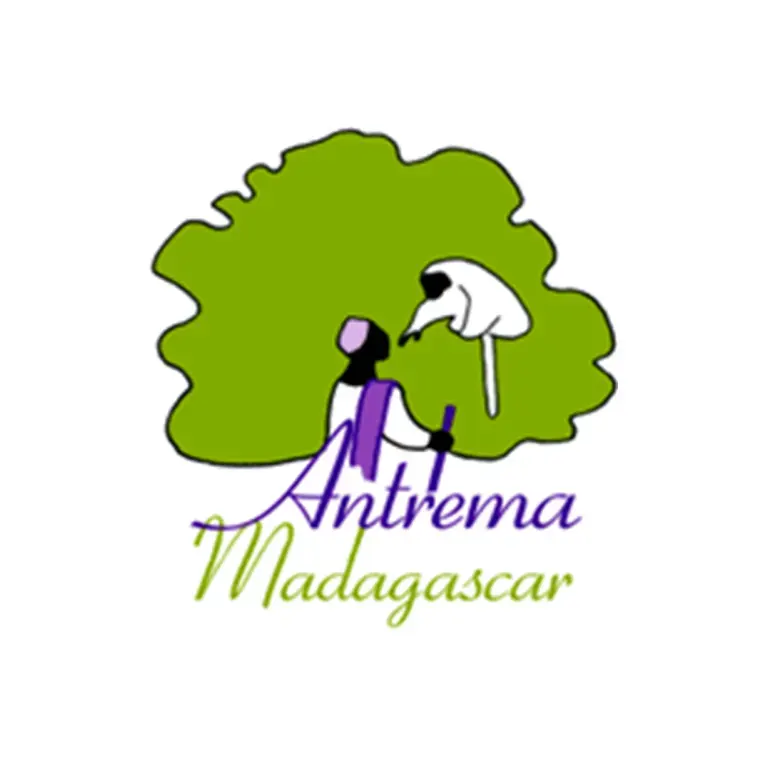
DONATE TO ANTREMA MIRAY Verified for authenticity Learn More IMPACT PROMISE Our Partners are carefully selected due to their high conservation impact Partner Snapshot Partner: Antrema Miray Location: Madagascar, Africa Category: Ecosystem Restoration Community Support and Development Protected Area Management Urgent Appeals: Saving Madagascar’s Dry Forests Date Founded: 2016 Website: www.antrema.net Partner Qualifications: Verified PartnerOne of Conservation Allies’ staff or trusted advisors has visited this organization and verified its work and impact. Legally ConstitutedThis organization is formally constituted and is a legally recognized non-profit in its country of origin. Top AccountabilityOur experienced team has rigorously reviewed the organization’s annual accounts. Learn More About Antrema Miray Antrema Miray (AMI) is a non-profit organization in Madagascar that was created by Prince Tsimanendry, Guardian of the Traditions. Their mission is to facilitate sustainable development and conserve the biodiversity, natural resources, and cultural heritage of the Biocultural Site of Antrema. The protected area of Antrema is located in northern Madagascar in the Province of Mahajanga. It is over 50,000 acres, including nearly 2,500 acres of marine reserve, and is home to hundreds of endemic species. Their Challenges The Biocultural Site of Atrema has suffered from deforestation, droughts, and erosion, all largely fueled by anthropogenic forces. The natural balance of the area has been significantly destabilized. Rewilding and conserving this area is of vital importance. There are many endangered species that depend on Antrema for their survival, including the Crowned sifaka and Mongoose lemur. Their Approach AMI works in collaboration with local communities to preserve the rich biodiversity and cultural heritage of the Biocultural Site of Antrema. They provide environmental education, social support, and conflict-resolution to local communities. They also lead sustainable development initiatives, providing essential support for environmental conservation and community development. Why They Need Your Help By supporting AMI’s initiatives, you contribute to the conservation of the natural wonders of the Biocultural Site of Antrema. AMI is dependent upon donations to continue their critical work of conserving Madagascar’s unique species, habitats, and culture. Conservation Allies charges no overhead fees or administration costs, meaning 100% of your donation goes directly to the Partner or Project of your choice. All donations made from the United States are fully tax-deductible.
ASITY Madagascar
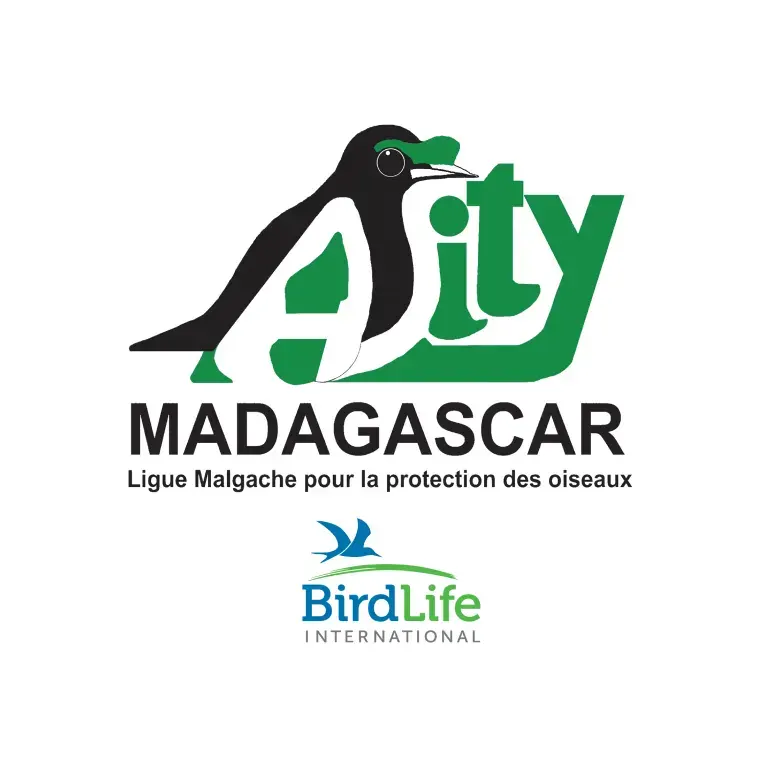
DONATE TO ASITY Verified for authenticity Learn More IMPACT PROMISE Our Partners are carefully selected due to their high conservation impact Partner Snapshot Partner: ASITY Madagascar Location: Madagascar, Africa Category: Community Support and Development Ecosystem Restoration Protected Area Management Wildlife Conservation Urgent Appeals: Help monitor biodiversity in Madagascar Date Founded: 2008 Website: www.asity-madagascar.org Partner Qualifications: Verified PartnerOne of Conservation Allies’ staff or trusted advisors has visited this organization and verified its work and impact. Legally ConstitutedThis organization is formally constituted and is a legally recognized non-profit in its country of origin. About ASITY Madagascar ASITY Madagascar is a non-profit organization based in Antananarivo that works to conserve Madagascar’s biodiversity through sustainable community development and education. ASITY manages four protected areas: The Mahavavy-Kinkony Wetlands Complex is located in the northwestern part of Madagascar. It is a refuge for many important endemic and threatened species. The Mangoky-Ihotry Wetlands Complex is located in the Atsimo Andrefana and Menabe regions. This unique landscape contains dry forests, spiny forests, lakes, mangroves, and swamps. The extensive lowland forest of Tsitongambarika, located in the Tolagnaro District and The 24,760 acres of Torotorofotsy wetland, located in Andasibe in central Madagascar. At each location, ASITY conducts ecological monitoring, research on target species, and engages in conservation and sustainable management of biodiversity in collaboration with communities. Their Challenges Wildlife and their habitats face numerous threats in Madagascar. With an estimated 80% of the human population living below the poverty line, people in Madagascar resort to unsustainable practices in order to get by. Such activities include wildlife poaching and deforestation for firewood and charcoal production. ASITY is working to reverse these trends and assists communities in transitioning over to sustainable habits. Their Approach ASITY fosters long-term behavior change in local communities through environmental education. They empower both current and future generations to understand the connection between the conservation of local natural resources and their own well-being. Why They Need Your Help ASITY is increasing their work in the ecotourism, health, and education sectors in order to improve the socio-economic conditions in the areas they protect. In doing so, they are investing in the future of Madagascar and ensuring the critical lands they are conserving remain protected far into the future. These increased efforts are resulting in an increased positive impact for conservation, but to continue, they need funding. Conservation Allies charges no overhead fees or administration costs, meaning 100% of your donation goes directly to the Partner or Project of your choice. All donations made from the United States are fully tax-deductible.


